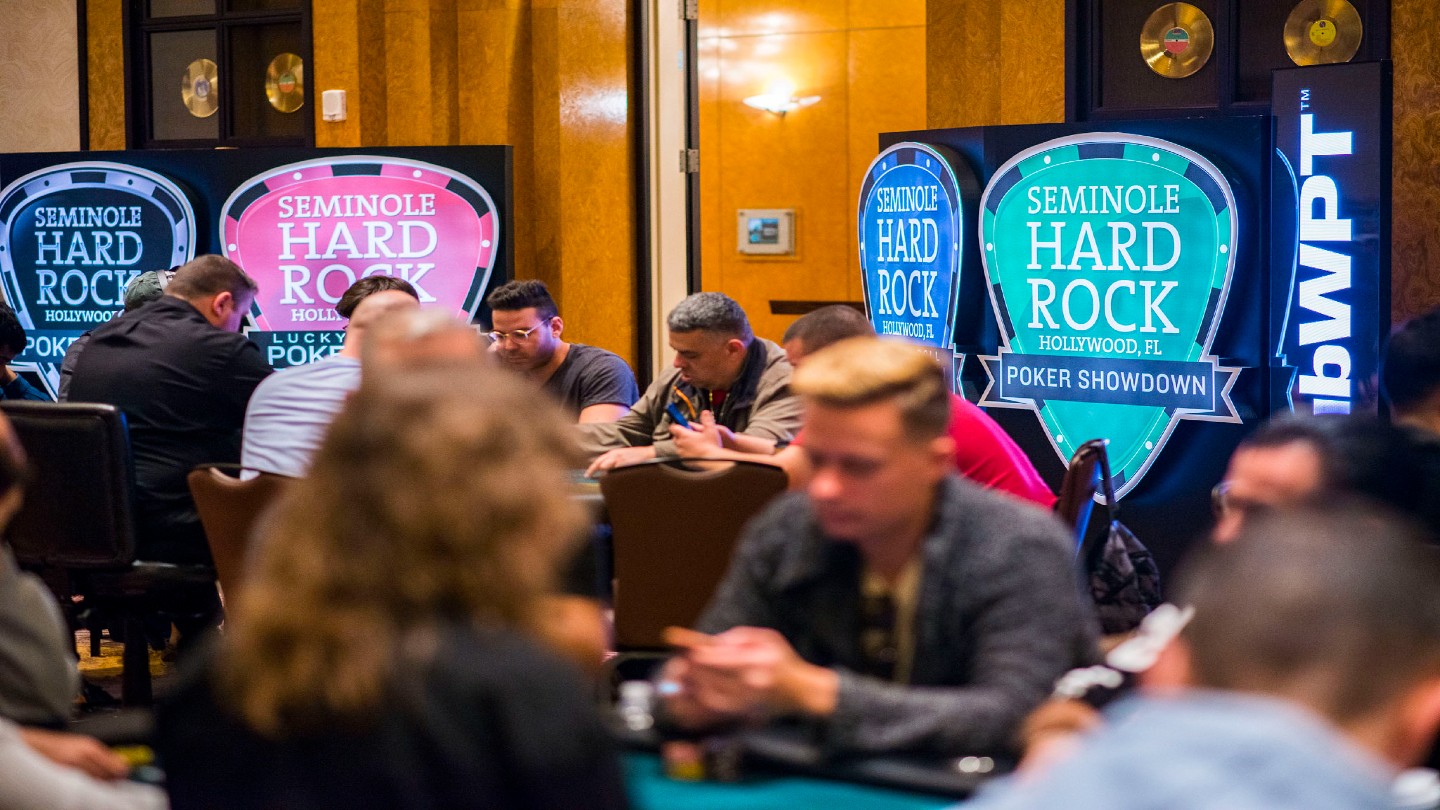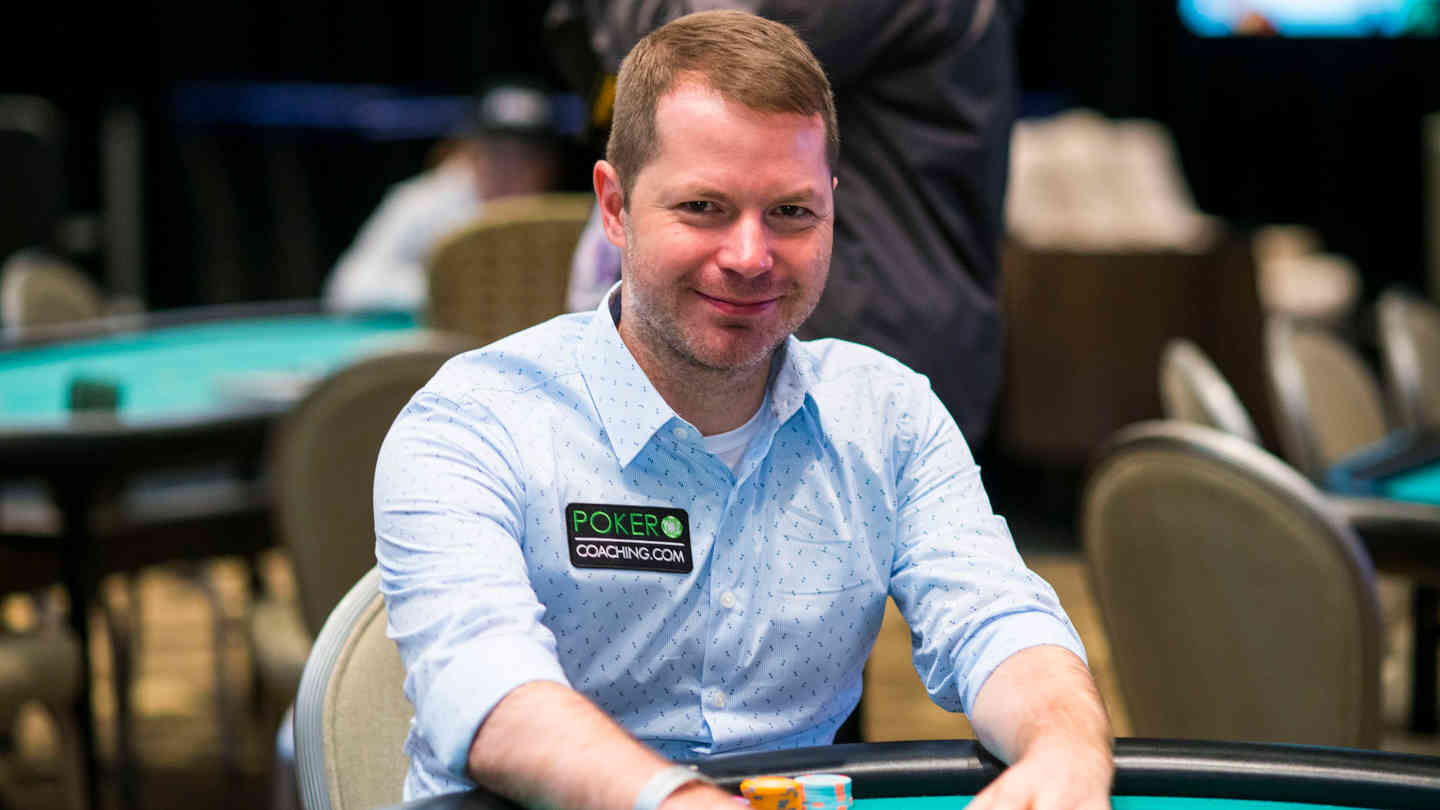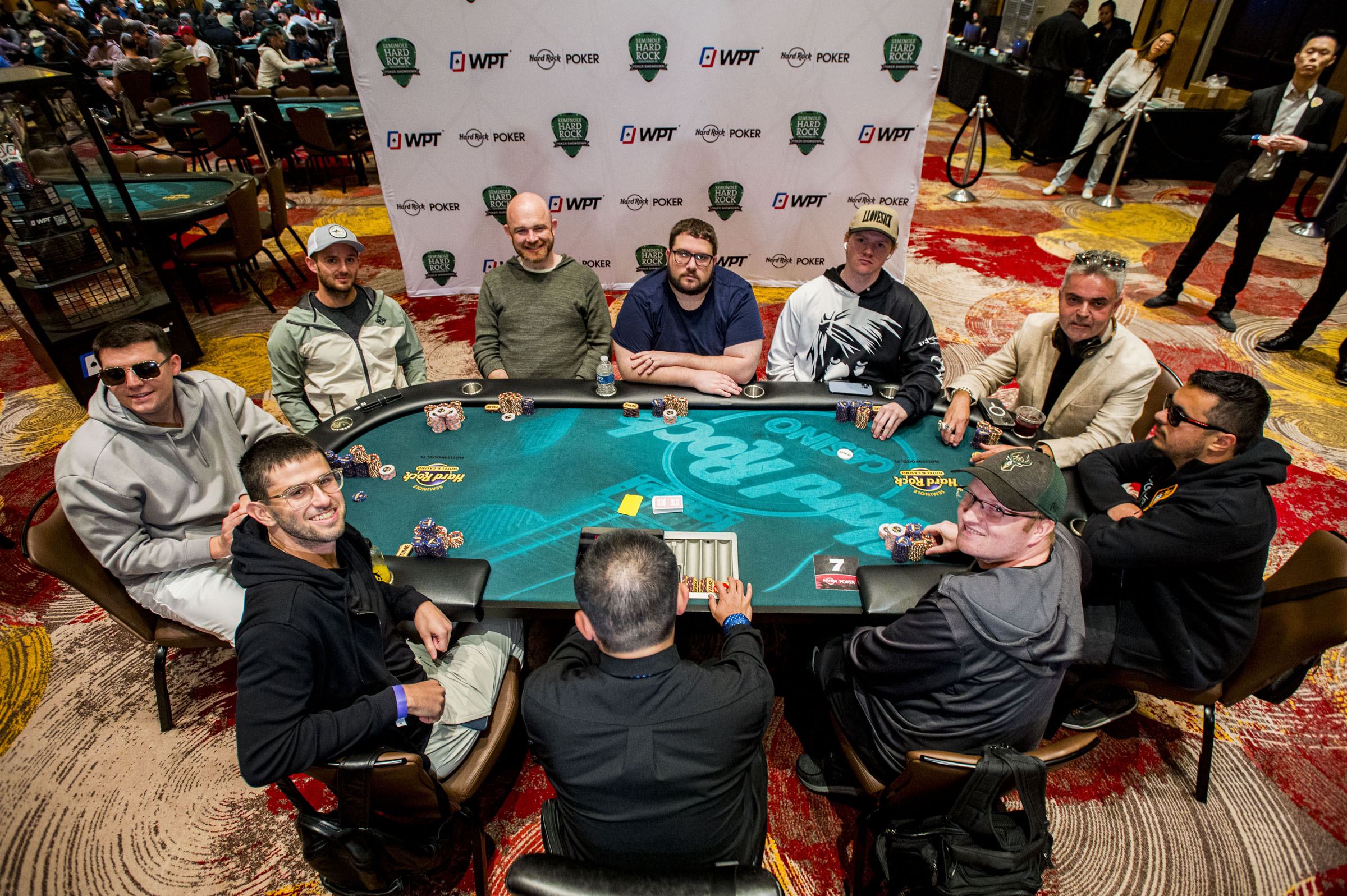Top Poker Tips for Play Money Players – Start Your Poker Journey Here

5 minutes
Last Updated: March 19, 2024
Poker is both a simple and a complex game. The more you learn, the more you realize you still have much more to go.
For beginners, it’s important to get back to basics and start with the fundamentals of the game before you decide to play for real money.
The following article will discuss some of the best tips for play money Texas Hold’em players, which should help you get solid fundamentals before putting any actual cash on the line.
Learn the Hierarchy of Hands
This is a crucial part of poker that you need to grasp as soon as possible. If you’re reading this article, you likely know all about pairs, straight, and royals flushes, but it’s important to be absolutely clear when the time comes.
If you're not 100% sure if a three-of-a-kind beats a two-pair or if a straight beats a flush, you could be in trouble.
The last thing you want to do is overplay your poker hand thinking that no one could possibly beat your three-of-a-kind 10s only to lose to the obvious straight.
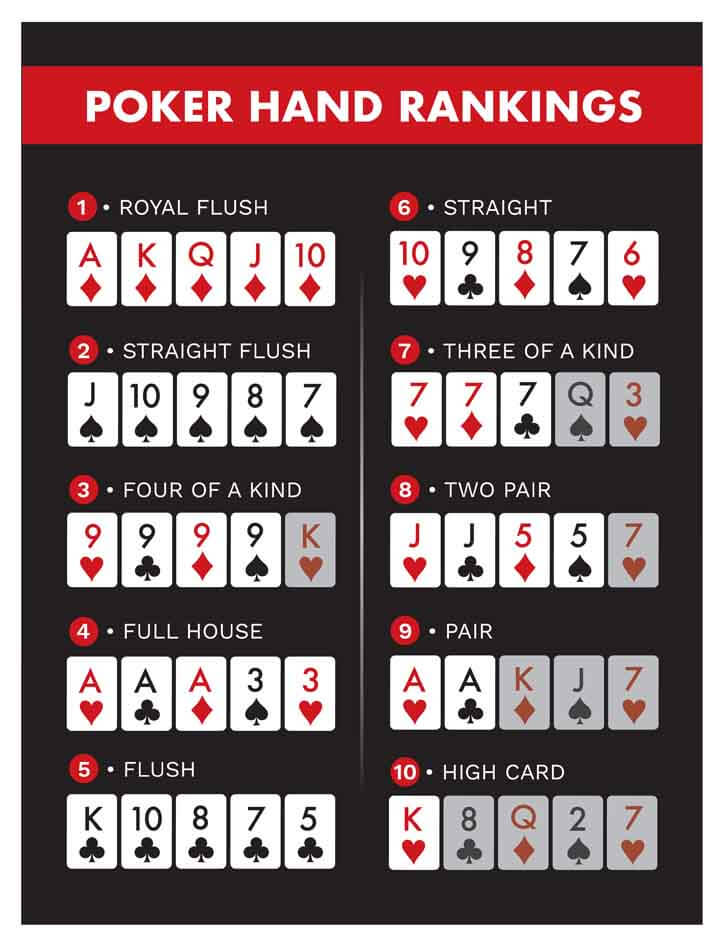
Starting Hands
Right off the bat, before you see any of the table cards, you'll be dealt your starting hand. This starting hand is by no means a make or break in terms of turning a profit, but it can give you a good indication.
Certain poker hands are simply not worth playing, especially as the game develops and the blinds increase.
What hands you choose to play depends on your playstyle and how many hands you want to be involved with.
However, as a general rule of thumb, look out for pocket pairs (44, 77, JJ), suited connectors (10J of diamonds, 67 of hearts), and two high cards (AK, KJ, AQ).
The worst starting hands are low cards with gaps from different suits like a 38 or 27. As you become more accustomed to playing, you will develop a range of hands you like to play.
Know Your Opponents
Watching your opponents and taking note of what they do is invaluable. At first, you may not pick up on all the clues another player is giving, but certain aspects are easier to spot than the others.
Does one of your opponents play every hand? Do they bet at every opportunity? Have they been caught bluffing at showdown multiple times?
Of course, this is much harder to do in play money games online, but there are a few hacks provided here at betspin poker guide.
You can begin to build a picture of what a player is likely to do in any given scenario.
The more you play, the more you are likely to notice and the more information you will have at your disposal.
Learn the Terminology
This is far from an essential tip that you need to be a competent poker player. However, by learning some of the terminology surrounding poker, you will open the door to learning more advanced tips in the future.
Giving a name to certain scenarios will also help further your understanding.
The following is a glossary of common poker terms. These are terms that are a step above the fundamental names of hands but may be worth bearing in mind:
- Tight player – Someone who is unwilling to bet often and folds regularly. Any raises from a tight player should be met with caution.
- Loose player – Someone who plays most hands and calls regularly. Loose players may bluff more but be prepared for a re-raise if you try to challenge them.
- Aggressive player – Someone who bets high and forces other players to fold in most situations. Aggressive players can also be tight or loose.
- Flop – The set of three cards that are first revealed. The round of betting prior to this is known as the pre-flop.
- Turn – The fourth communal card.
- River – The final communal card.
- Tilt – A series of poor or uncharacteristic plays, usually as a result of a loss or bad beat.
- Bad Beat – A statistically unlikely outcome that sees one player unwittingly profit from an objectively bad play.
- Board Texture – The community cards’ setup can either be described as ‘wet' or ‘dry.' A wet board presents many possible strong hands and may feature several cards of the same suit and/or straight possibilities. A dry board is the opposite and is likely made up of cards apart in rank and of different suits.
- The Button – This is the final player to act prior to the blind players, and as such, they can play a wider range of hands from this position.
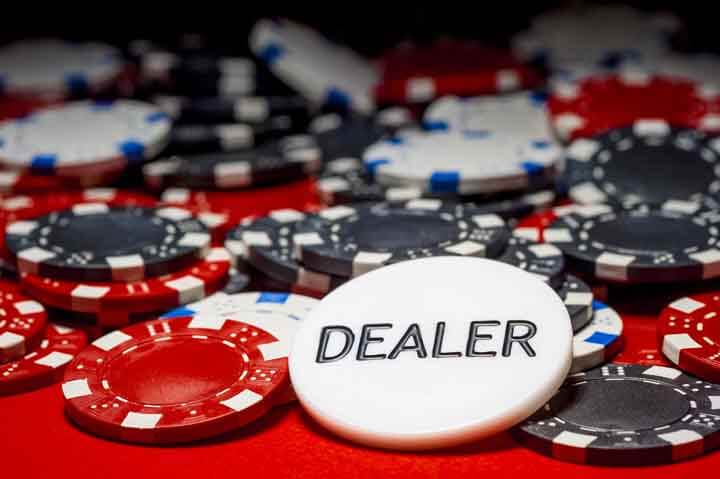
- Under the Gun – This is the first player to act, so you should play a narrower range of hands from this spot at the table.
- In Position – A player is in position relative to the players acting before them and out of position in relation to the players acting after them.
Knowing these terms may not be essential for your results at the table, but it will help you better understand any future strategy content you come across and will definitely make a table conversation much easier.
Build Strong Fundamentals With Play Money Poker
Play money poker games may not be the best training ground for aspiring players. Because there is nothing of actual value on the line, many players will make erratic and nonsensical moves that you’ll almost never encounter at real money tables.
However, you have to start somewhere and get some experience under your belt.
If you're completely new to the game, jumping straight into the real money action could be too ambitious and costly. You first need to learn some basics of the game mechanics before you're ready to move on.
I’m not suggesting that you should stay at play money tables for too long, though. Once you feel comfortable enough about the rules, you can slowly start to graduate to real money games.
Online, you’ll find games starting as low as $0.01/$0.02 and tournaments with buy-ins of $0.10, so you won’t need to break the bank to make the transition.
When you feel ready to do, we have some more poker tips for beginners to make it even easier for you and get you started on the right foot. Keep on playing and learning, and you’ll eventually get to where you want to be in poker!








